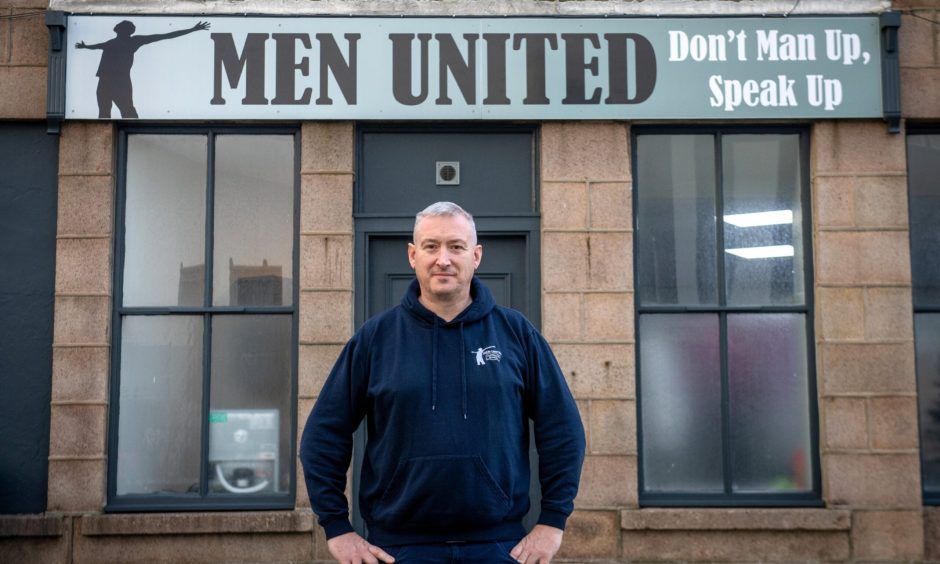
Sandy Garvock knows everyday things can make a difference – and even save a life.
For him it was the sound of the phone ringing that stopped him when he wanted to end his own life. That was a wake-up call that led to him speaking up about the way he had been feeling.
Due to his own mental health struggles, Sandy knows how important it is for others in the same situation to be able to connect with people who have experience of what they are going through themselves.
Four years ago he founded Men United in Peterhead, a group which offers men a safe space to speak to others.
Figures released in the autumn showed that across Scotland in 2022, the suicide rate for men was almost three times higher than it was for women. According to statistics from the National Records of Scotland, there were 556 suspected suicides for men and 206 for women.
While mental health is being spoken about across society like never before, the struggle to break down barriers around the subject for men remains.
But groups such as Men United are giving others hope as well as letting them know they are not alone.
‘There was nowhere to go’
Speaking about what led to the birth of Men United, Sandy, 46, explained that after the suicides of three young men in Peterhead, he wanted to take action to help.
The dad-of-four and stepdad-of-two wanted to foster an atmosphere where men could talk freely.
Throughout his own life he has had his own mental health struggles, saying from a young age he suffered from bullying: “From the earliest memory I have I didn’t enjoy life,” Sandy said.
He encountered tragedy in his teens after the death of friends in a car crash, saying he then “spiralled out of control” and began drinking a lot.
As an adult he worked in pubs and nightclubs and said his “head was everywhere, I was just a mess”, and by the age of 35 his first marriage had broken down.
Speaking of the moment he realised he needed to get help, Sandy said he was going to take his own life – but it was a phone call which stopped him.
He said: “That was the one phone call that saved my life. From then it was like, I need to change this, I need to do something about it. So I went and I started speaking to people and my life drastically changed.
“Then four years ago these three young guys in Peterhead committed suicide, it brought back these thoughts I had – why are guys not speaking, why are they not doing something, going somewhere or speaking to someone? I started doing some research and realised there was absolutely nowhere to go.”
‘Every guy is different’
Men United began with a Facebook page. Within 24 hours that page had more than 1,000 people join. It has grown “rapidly” Sandy says, and now has groups in Turriff and Newmachar as well as Peterhead. More recently a group for 16-21-year-olds in Peterhead has been launched.
In Peterhead the base is open from 10am-2pm every day except Wednesday and a Sunday, where men can drop in, and as Sandy says “the kettle is always on”. While on a Thursday evening they hold meetings, which begin with some social time, and then a group discussion after.
Speaking about how it operates, Sandy said: “There’s no agenda or programme that we follow. It’s totally open to the guys to speak or whatever they want. We find that works because you can’t have a programme, every guy who walks in the door is different.
“It takes weeks to build up the courage to say ‘I’m struggling here’, but eventually they do. We wanted to create the pub atmosphere without the alcohol. We’ve got the big TV, we watch the football, we have a pool table and darts board. We sit and we have a laugh, we have a chat, we have banter, we have a lot of fun.
“It’s to give guys that social aspect again, because so many guys lose the social aspect – when you start to feel down the last thing you want to do is go into a crowd of people.”
‘A horrible place’
Having that lived experience of what the men might be feeling is important, says Sandy, and he explained: “At the end of the day, that darkness is the darkness, it’s a horrible place to be. I can connect with these guys because I know how it feels. I know how it feels to think that your life isn’t worth living.”
Earlier this year the group moved into its purpose-built base in the former Union Bar on Peterhead’s Union Street.
Sandy quipped that it is a “man cave”, and it even has a four-legged friend who is helping the men too, in the form of therapet dog Jaxson who attends every week. He added: “Jaxson is now part of the group – he is probably more vital to the group than I am!”
‘You can’t bottle it up’
Sandy tells us that since forming they have helped almost 800 men speak about the issues they face – and have also stopped 33 men from committing suicide.
He added: “It’s awesome that we’ve managed to save so many guys. But it’s also quite sad the fact that so many guys are struggling.
The festive season can be difficult for many due to factors including financial and family reasons, and last year December and January were the group’s two busiest months, and this December has also seen an influx, Sandy said.
However, it’s clear to him that work needs to be done to de-stigmatise the issues around men’s mental health. He told Your Life: “There’s still a massive stigma, there still is this thing that speaking to someone’s a weakness. Male pride is a horrible thing. Men have this thing that there’s shame and something to hide, when there’s not.
“For guys that are struggling – the best thing you can do is speak about it. You can’t bottle it up; if you bottle it up you end up exploding. Go find someone to speak to, there’s lots of organisations you can speak to. We’re here for you to speak to – just ping us a message and get in touch. We’re here to help.”
And he went on to say: “You are not the only one”.
From member to employee
Men United has nine volunteers who help out – three for each group, and they are all men who have gone along to the group at some point.
Aside from Sandy, Men United also has project co-ordinator Kevin Buchan on its staff. Kevin, from Fraserburgh, has gone from going along to the group after experiencing his own mental health issues, to volunteering, and now being employed part-time.
Kevin said: “I was prompted to come along here because I have struggled with mental health for quite some time – a number of years.
“I was a drug addict at one point and I was homeless. I started coming along because I had heard of Men United helping men with their mental health struggles.”
‘There’s always hope’
Kevin got in touch and started going along to the meetings, he said: “It’s a safe space to come and speak about anything and everything. Any issues – there’s nothing you can’t speak about.
“It helped me so much I am now employed. I was taken on as one of the workers here working with Sandy five days a week part-time in the building to help other guys.
“I know that having that safe space to come and speak about anything or everything just to give some of the guys that come in hope, that it does get better. No matter where you are at in life, what you’ve been through, or what you are going through, that there’s always hope.”
Working with the next generation
Meanwhile, for Gordon Hay, working with the next generation is just one way to help change the narrative surrounding men’s mental health.
Gordon is team lead for the children’s wellbeing team at Aberdeenshire Council, and heads up a small team who support young people across Aberdeenshire, and he has been a social worker within children’s services for many years.
He also sits on a sub group for the Suicide Prevention Delivery Group – which sees multiple agencies come together in a bid to save lives.
Gordon’s team provides intensive support in a wide range of cases, and can help children and young people look at their “life story” in order to help them make sense of traumatic experiences.
Increased awareness and a change in conversations means young boys may now grow up with an entirely different take on mental health, in comparison to previous generations.
He said: “I think there’s still a long way to go surrounding the expectations and pressures within society of what it means to be a man,” said Gordon.
“There’s definitely still a stigma when it comes to men expressing their emotions, and showing anger may be a way of masking what is going on; I think it may be considered more acceptable than showing fear, uncertainty, anxiety or upset.
“I think part of the reason why suicide rates can be higher amongst men is because of the perception that it’s a weakness to talk about emotions.”
‘It’s everyone’s business’
“Social isolation and loneliness exacerbates this problem, but we know that there is hope.
“We now know that recovery from traumatic experiences is possible through supportive relationships.
“So we need to create supportive communities, an awareness of who to speak to when you need help, and an ethos where preventing suicide and improving mental health is everyone’s business.
“We are seeing a subtle shift towards being more open and vulnerable; nurture groups in schools are now commonplace and normalise talking about emotions.”
- Samaritans can be called anytime for free on 116 123
- For more information about Men United go to menunited.scot/contact
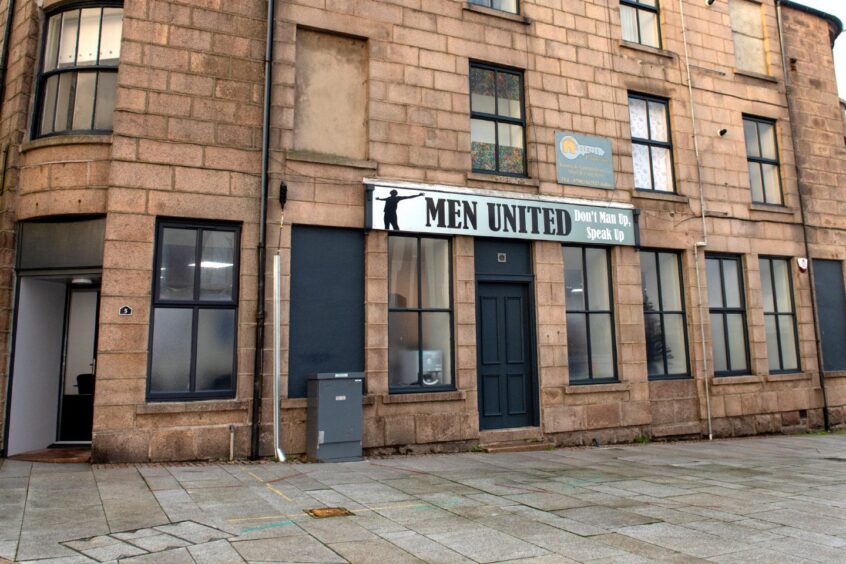
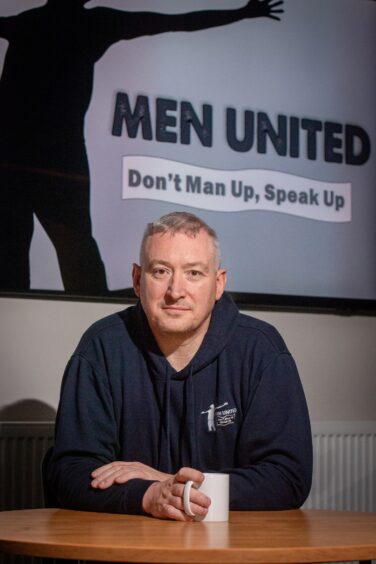
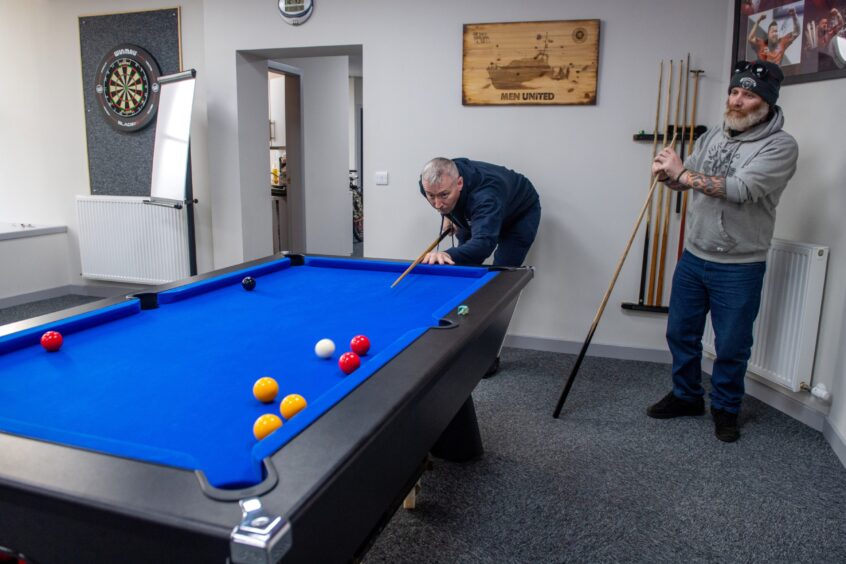
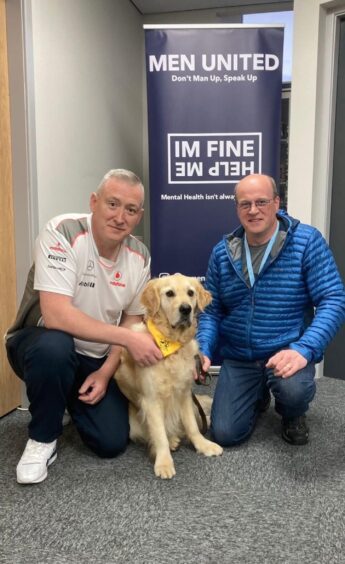
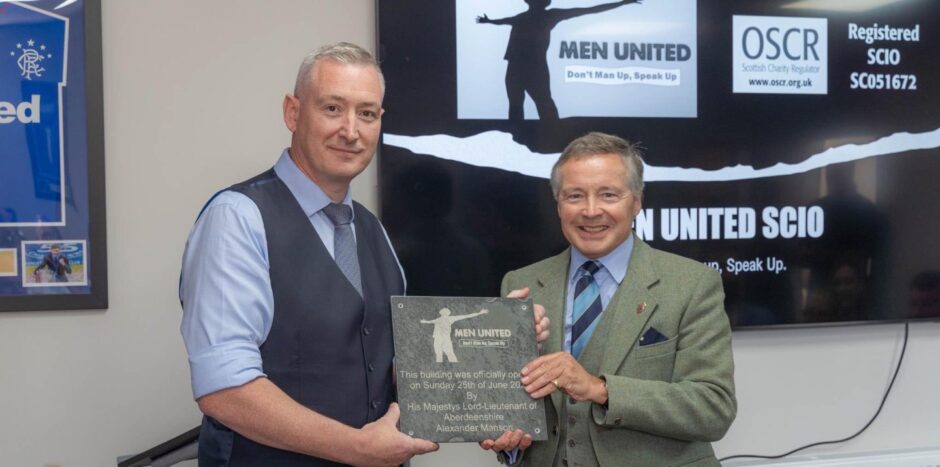
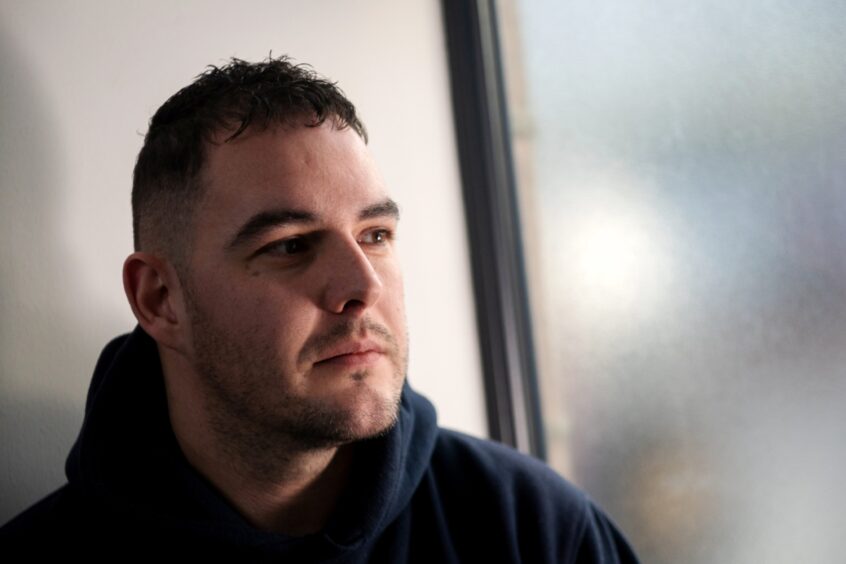
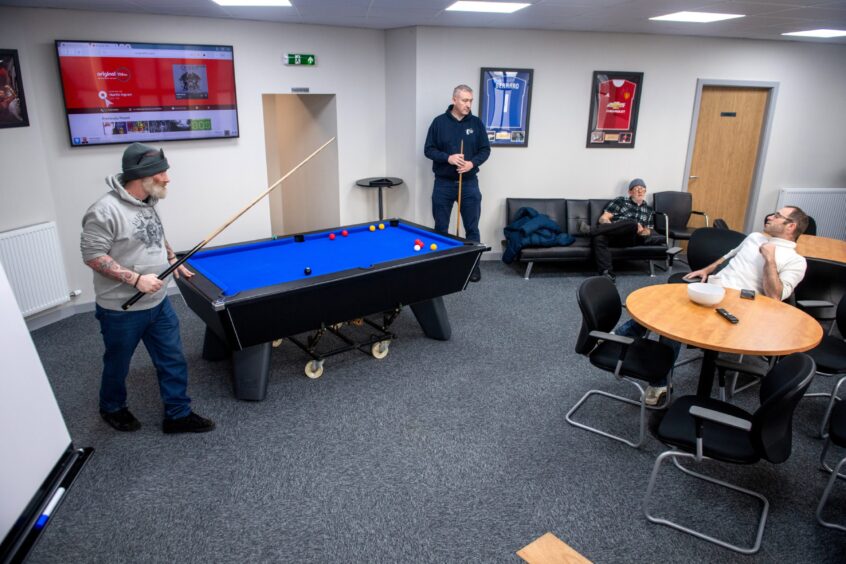
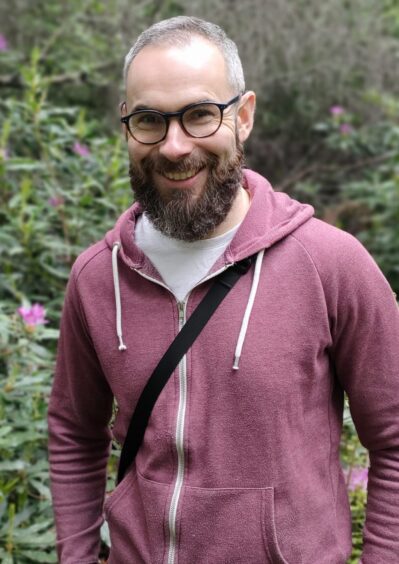
Conversation